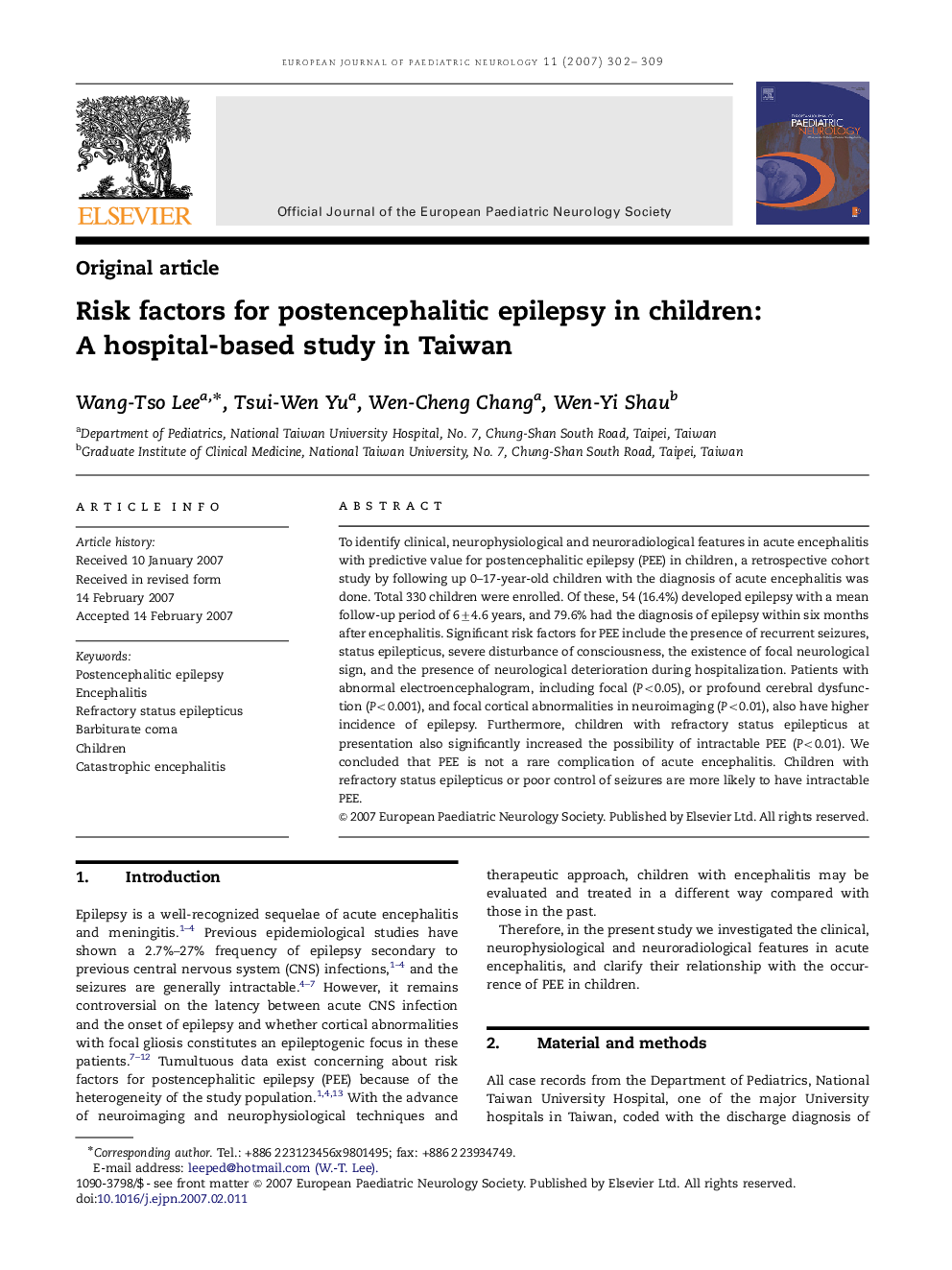| کد مقاله | کد نشریه | سال انتشار | مقاله انگلیسی | نسخه تمام متن |
|---|---|---|---|---|
| 3054998 | 1580065 | 2007 | 8 صفحه PDF | دانلود رایگان |

To identify clinical, neurophysiological and neuroradiological features in acute encephalitis with predictive value for postencephalitic epilepsy (PEE) in children, a retrospective cohort study by following up 0–17-year-old children with the diagnosis of acute encephalitis was done. Total 330 children were enrolled. Of these, 54 (16.4%) developed epilepsy with a mean follow-up period of 6±4.6 years, and 79.6% had the diagnosis of epilepsy within six months after encephalitis. Significant risk factors for PEE include the presence of recurrent seizures, status epilepticus, severe disturbance of consciousness, the existence of focal neurological sign, and the presence of neurological deterioration during hospitalization. Patients with abnormal electroencephalogram, including focal (P<0.05), or profound cerebral dysfunction (P<0.001), and focal cortical abnormalities in neuroimaging (P<0.01), also have higher incidence of epilepsy. Furthermore, children with refractory status epilepticus at presentation also significantly increased the possibility of intractable PEE (P<0.01). We concluded that PEE is not a rare complication of acute encephalitis. Children with refractory status epilepticus or poor control of seizures are more likely to have intractable PEE.
Journal: European Journal of Paediatric Neurology - Volume 11, Issue 5, September 2007, Pages 302–309